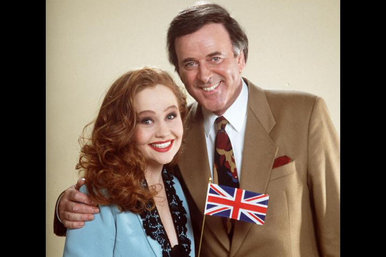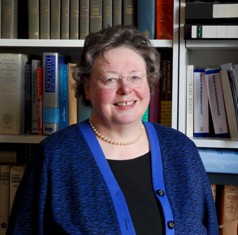 |
| It was 1993, and the UK came 2nd in the Eurovision song contest |
Mr Jim White moved a Private Members' Motion asking that
... the principle of direct suffrage (as with clergy and bishops) should be applied to the election of lay members of General Synod as a foundation stone of, and not simply one of the options in, the impending review of the synodical system.[The review eventually emerged as the Bridge Commission Review, 1997]
Jim White said,
The proposition itself is very brief and simple: that the House of Laity should be elected directly by all Church members. It is a principle that is laid before you. You could say it was one member, one vote, if you wanted to choose that language. The reason for adopting the principle is the trust, fellowship and equality, one with another, that our Church institutions should demonstrate.Speakers against the proposal said,
- It would be less fair because (a) most candidates would be unknown to electors, and (b) because most would vote for someone they know this proposed system would give unfair advantage to candidates from large congregations.
- It would increase factionalism.
- Allowing non-Anglicans on electoral rolls to vote would be absurd.
- Deanery Synods should be taken more seriously, not sidelined
- It would cost too much
- Clergy would determine the lay vote
- The church is not a democracy (If I had an old shilling for every time I've read this ....)
- All representative systems are flawed
- "The House of Laity is not there to represent the interests of the laity, but to bring a lay interest to the representation of the Church as a whole and as a unity.". i.e. "to assist discernment" (Tom Sutcliffe)
- It disadvantages candidates who are less able to use the media, and aids the already famous
- There would be too much discrepancy between the value of a vote for a lay representative compared to the value of a vote for a clerical representative
- Church elections are totally different from secular elections
- There would be a possibility of a legal challenge if all the administration did not work fairly
- People won't inform themselves about the issues
- Voting on manifestos alone leaves you vulnerable to misrepresentation
- The young will be discriminated against because they move dioceses more often
Those in favour added
- You can trust the people
- The representativeness and legitimacy of the House of Laity under the present electoral system is questioned.
- Deanery Synods are 'the weakest link in synodical government', and too weak to legitimate General Synod.
 |
| Dr Christina Baxter |
The motion was amended, a move instigated by the Synod's Standing Committee and led by Dr Christina Baxter. The amendment excised the substance of the proposal and shunted discussion into the forthcoming review of synodical government as just one option.
The final motion read:
The final motion read:
... the principle of direct suffrage for lay members of General Synod (as with clergy and bishops) should be considered as one of the main elements in the impending review of synodical government.But the Chairman of that debate pulled a fast one. In order to demand a vote by houses 25 members had to request it. When asked, only 22 members stood to make the request. He decided to order a vote by houses anyway.
The result was:
Bishops: 17 for, 4 against
Clergy 107 for, 60 against
Laity 75 for, 129 against
In a vote of the whole Synod, therefore, the motion would have passed.
It's hard to interpret the vote in relation to the debate. Most speakers were against the motion, and were evidently outvoted. It's probable that those of the House of Laity who voted against the proposal were content with the arrangements that had put them there. Some may have objected to the watering down of the motion - though Jim White recommended acceptance, though with a heavy heart.
It's also probable that the fact the vote was lost in the House of Laity meant that the Bridge Commission need give the direct suffrage of the laity very little consideration.
This was good news for opponents of the idea, given that most (not all) of their arguments were very weak and that many relied on disparaging the electorate.
And I think I'm right - and open to correction - that this was the last time the issue of direct lay election was debated in General Synod until 2011.
One member : One vote
No comments:
Post a Comment